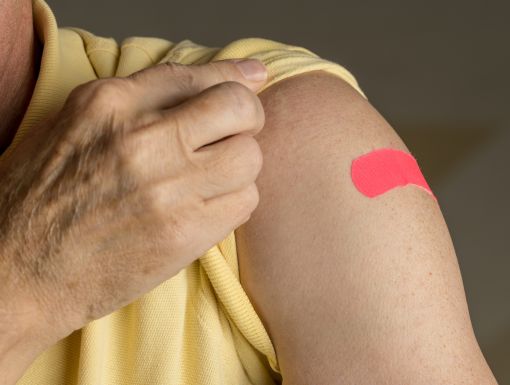
What Is Pneumonia? Symptoms, Causes and How to Protect Yourself
Are you coughing, having trouble breathing or running a fever? These could be signs of pneumonia, a common lung infection that can range from mild to life-threatening. Understanding what pneumonia is, how it’s caused and what you can do to prevent it, can help you stay informed and prepared, rather than alarmed.
What is pneumonia?
Pneumonia is a common lung infection that causes the air sacs in your lungs (alveoli) to become inflamed and fill with fluid. This can lead to symptoms like coughing, fever, chills and difficulty breathing.
What causes pneumonia?
- Viruses (like the flu)
- Bacteria (such as streptococcus)
- Fungi (like candida, which also causes yeast infections)
How does pneumonia spread?
The infection is often spread through coughing, sneezing or close contact with someone who is sick. While anyone can get pneumonia, certain groups like older adults, young children and people with weakened immune systems are at higher risk.
Is it pneumonia or a common cold?
Mild cases of bacterial or viral pneumonia, often called "walking pneumonia," can feel like a common cold. So, how can you distinguish between pneumonia and a cold?
The difference is the cough:
- Pneumonia: A productive cough that brings up mucus, which is often green, yellow or even bloody.
- Cold: A dry cough or one with clear or white mucus.
Other common symptoms of pneumonia include:
- Fever (mild or high)
- Shaking or chills
- Shortness of breath
- Fatigue or weakness
The only definitive way to diagnose pneumonia is through a chest X-ray, so it’s important to see a doctor if you’re experiencing these symptoms.
How do you treat pneumonia?
Treatment for pneumonia depends on the cause, severity and your overall health. Most people can recover at home with:
- Plenty of rest
- Staying hydrated by drinking lots of fluids
- Managing fever with over-the-counter medications like acetaminophen or ibuprofen
- If the pneumonia is bacterial: antibiotics prescribed by a healthcare provider
In more severe cases, especially for older adults or those with underlying health conditions, hospitalization may be required. Recovery typically takes one to three weeks, but pneumonia can be life-threatening if left untreated.
Can I prevent pneumonia?
The good news is that there are simple steps you can take to reduce your risk of getting pneumonia:
- Practice good hygiene by washing your hands frequently, especially after coughing, sneezing, or using the restroom. Avoid touching your face, as germs can enter through your eyes, nose, or mouth.
- Don’t smoke as smoking damages your lungs and makes it harder for your body to fight off infections.
- Staying healthy by eating a balanced diet, exercising regularly and getting enough sleep to keep your immune system strong.
- Get vaccinated to prevent seasonal influenza, a common cause of pneumonia.
Early diagnosis and treatment can significantly impact your recovery. Pneumonia is a serious condition, but with the right care and preventive measures, you can reduce your risk of pneumonia.



